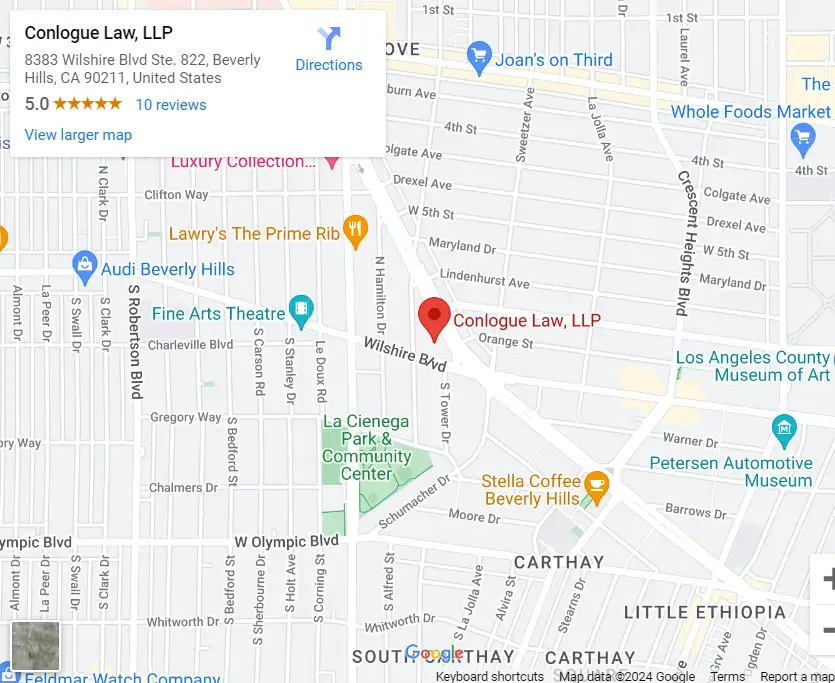Know If Mediation or Litigation is Right For Your Case
When facing a personal injury, civil rights violation, or maritime dispute in California, your chosen path can dramatically impact your recovery. This is when you’ll need the help of a California dispute resolution attorney who can help you pursue traditional litigation in court or know more about alternative dispute resolution (ADR).
This choice isn’t just about legal strategy—it’s about your healing journey, financial future, and peace of mind. While litigation places decisions in a jury’s hands through a formal, often lengthy process, mediation offers a collaborative approach where you maintain control over outcomes with professional guidance.
This article will examine how these two paths work in California personal injury, civil rights, and maritime law, helping you determine which approach aligns with your unique case and goals.
Quick Summary:
- Mediation and litigation represent different approaches to dispute resolution: mediation focuses on collaboration with a neutral third party, while litigation relies on court judgments through a formal legal process.
- Mediation typically offers significant cost savings, faster resolution times, and higher confidentiality than litigation, which can be expensive and time-consuming, as well as create public records.
- Choose mediation when both parties are willing to negotiate in good faith, when disputes involve sensitive issues, or when a quicker resolution is desired.
- Litigation becomes necessary in high-conflict cases where communication has broken down, situations involving power imbalances, or when court enforcement or legal precedent is required.
- Alternative dispute resolution benefits include preserving relationships, reducing emotional stress, allowing creative solutions, and giving parties control over outcomes.
What is Mediation?
When you choose mediation, you want to solve your legal problem without setting foot in court. Instead of a judge deciding your fate, you sit with a mediator who helps you and the other party discuss your issues and find common ground.
The mediator keeps your discussions on track, ensures things stay balanced, and helps you focus on fixing the problem rather than fighting about who’s right. They won’t take sides or force you to accept any deal. You both must agree to any solution voluntarily – nobody can make you say yes to something you don’t want. This works best when you and the other person want to negotiate and avoid the headache of a lengthy court battle.
What is Litigation?
When you go to court, you enter a formal legal process to settle your dispute. This happens when you and the other person can’t see eye to eye, so you file a lawsuit and put your fate in the hands of a judge or jury.
During litigation, a lawyer will represent you, collect evidence, and make your case. The process involves filing official paperwork, appearing at pre-trial meetings, and possibly going through a full trial. If your case does go all the way to trial, whatever the judge or jury decides becomes legally binding—meaning you both have to follow it whether you like it or not.
Key Differences Between Mediation and Litigation
Mediation and litigation solve problems differently. Below are some of their notable differences so you know which to choose for your case:
Cost
Mediation usually costs less because it avoids long legal battles and high lawyer’s fees. Litigation can be expensive since it involves court fees, legal paperwork, and attorney costs, which add up over time.
Time
Mediation often takes less time because people can schedule meetings when available and reach an agreement faster. Litigation can take months or even years because of court schedules, legal rules, and the possibility of appeals.
Privacy
Mediation is private, meaning discussions and agreements stay between the people involved and do not become public records. Litigation happens in court, so most details, including evidence and final decisions, are available for anyone to see unless a judge decides to keep them private.
Flexibility
Mediation allows people to create their own solutions, which means they can work out details that a court might not consider. Litigation follows strict rules, so the outcome depends on what the law says rather than what might be the best compromise for both sides.
Control Over the Outcome
In mediation, both sides have a say in solving the problem, making it more likely that they will both be satisfied with the agreement. In litigation, the decision is made by a judge or jury, which means one side could end up unhappy with the result.
When to Choose Mediation
Mediation is a good option when both parties are willing to negotiate and work toward a fair solution. Mediation might be your best path when:
- You and the other party can still talk to each other: Even when things are tense, or you and the other party can sit in the same room without a fight, there’s hope. Many civil rights cases find better endings through candid conversation than years of legal filings.
- Your situation feels too personal for the public eye: When your workplace discrimination story or personal injury details make you uncomfortable to share widely, mediation keeps your business your business. No court reporters, no public records – just focused problem-solving.
- You’d rather not wait forever (or spend a fortune): Your case can be resolved through mediation in months. Meanwhile, the alternative is that you might find yourself stuck in court for years, which could also lead to mounting legal bills with no assurance of a favorable result. Mediation can lead to a resolution in a shorter time and at a lower cost.
When Litigation is Necessary
When negotiations hit a wall, trial lawyers fight for your rights through the court system. You might need to go to court when:
- You can’t talk it out anymore: Mediation probably won’t help if you and the other side can’t see eye to eye. The court might be your only shot at getting what’s fair for severe injuries or business disputes.
- There are abuse or power problems involved: Mediation works when both sides can speak up equally. But in cases of domestic violence or workplace harassment, you might need a judge to make the call.
- You need official enforcement or want to set an example: Some civil rights violations, maritime claims, or significant injury cases need a court ruling to establish a standard or ensure orders are followed. In these instances, litigation is the best approach.
What are the Benefits of ADR?
ADR is a different path to justice that completely sidesteps the courthouse. The approach offered by ADR is valuable for many people because of the following benefits:
- You, the other party, and a mediator work directly to find common ground. This option lets you settle the issue among yourselves rather than leaving life-changing decisions in the hands of a judge.
- You also have the opportunity to have a solution-based conversation rather than placing blame. It is necessary when ongoing relationships hang in the balance and must be preserved beyond the dispute.
- Compared to a formal court proceeding, the ADR process allows you and the other party to create a valuable space for emotional healing with a practical resolution.
- When you choose ADR, you open the door to creative and unconventional solutions that traditional courts rarely consider, allowing flexibility to craft outcomes that fit your specific circumstances, such as maritime cases.
- Perhaps most importantly, ADR allows you to maintain control over the decisions that will affect your life in the future—from financial settlements to ongoing arrangements.
Make Your Choice with the Help of a California Dispute Resolution Attorney
Choosing between mediation and litigation isn’t a decision to make without guidance from a California dispute resolution attorney. Both paths have their place, but what matters most is finding the right fit for your case. Knowing alternative dispute resolution benefits can help and align perfectly with your needs. Or you might need the structured authority that only litigation can provide.
At Conlogue Law LLP, we craft strategies that are as individual as your case. Connect with us today for a free consultation, and let’s discuss which path might lead to the resolution you’re looking for.








